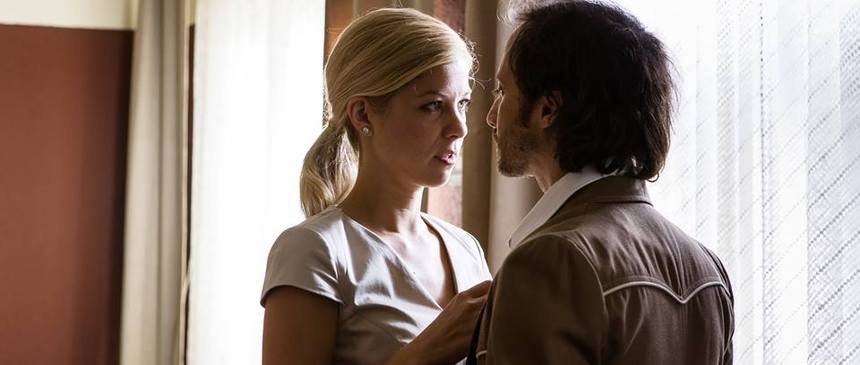Review: DIE WERKSTÜRMER Wants To Be A Feel Good Summer Comedy So Hard That It Hurts

Die
Werkstürmer is the story of Patrick, who works in a rural steel factory. Patrick and his fellow workers begin to encounter problems with the labor union and threaten to go on strike. Patrick's ex-girlfriend Babs returns to the rural village as
a representative for the union. She is about to marry a colleague from Vienna, where her
life now takes place. But Patrick is still in love with Babs. He begins to engage in
protests and negotiations with crooked business men to win back the heart of
his great love and save the steel plant from getting shut down. The title can be understood as a pun on the soccer playing workers who start to gain power by fighting against the unfair employers. The word "Stürmer" (striker) means both a forward on the soccer pitch and someone who attacks/protests something politically. The "Werk" in the title equals the factory. Therefore it is quite fitting that the only connection between the good and the bad guys is their love of soccer.
As the film clearly has a lot of sympathy for the rural people and their funny habits, it loses where it could win most: Though the film plays on Austrian ground, there is no real Austrian setting visible. First of all, the soundtrack of the film is loaded with American blues and country music, which gives the film the strange feeling of an American indie. Secondly, the characters and plot are tied so closely to dramaturgic structures that there is no real life to them. Even their heavy use of local dialect (and cursing in such dialect) does not help. The ex-girlfriend is the ex-girlfriend, the best friend is the best friend, and the policeman is the policeman. Nobody has anything to do in the movie besides fulfilling their role. Bearing in mind that the movie tries to be a comedy, it lacks the courage to go over the top or to have autonomous incidents that have nothing to do with the basic plot structure.
There is nothing to say against a classical narrative if the filmmakers have something to say. But behind the strange mixture of political motives, comedy, and love story, there is a terrifying void in Die Werkstürmer. Nevertheless, some scenes show what could have been done. The movie is truer to itself when it plays against the cliché and shortens what normally would have been a long, involved scene. For example, as Patrick starts to protest against being locked out of his workplace, nobody helps him and the scene suddenly stops, which could in theory, hit a tender spot both comically and dramatically. Or when the arrogant businessmen of Vienna and the local soccer club start to play a match that ends just after a few seconds because Patrick fouls the bad guy so hard that he cannot continue to play. The trippy police officer of the village also has his moments of brilliance. But in the end, it adds up to three or four laughs, and this cannot be enough for the national summer comedy of the year.
In the credits, suddenly, without any apparent reason, animated hearts appear next to the titles. Die Werkstürrmer tries so hard to make the audience feel good and to be a summer hit that it just feels fake. But maybe this is all a strange variation on Austrian feel-bad cinema, because leaving the cinema I ended up feeling worse than before.
The film is now playing in theaters throughout Austria. Visit the official site for more information.







